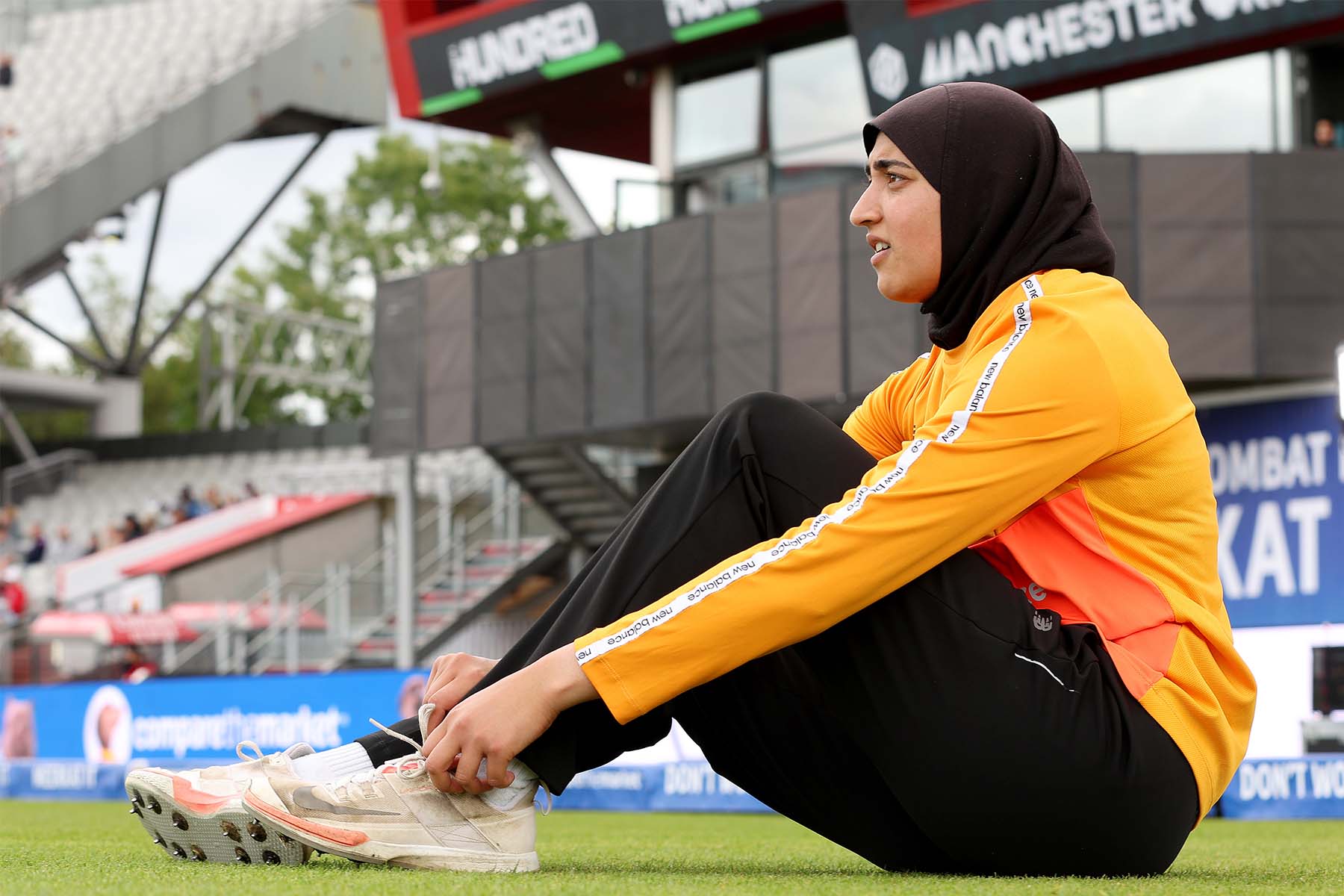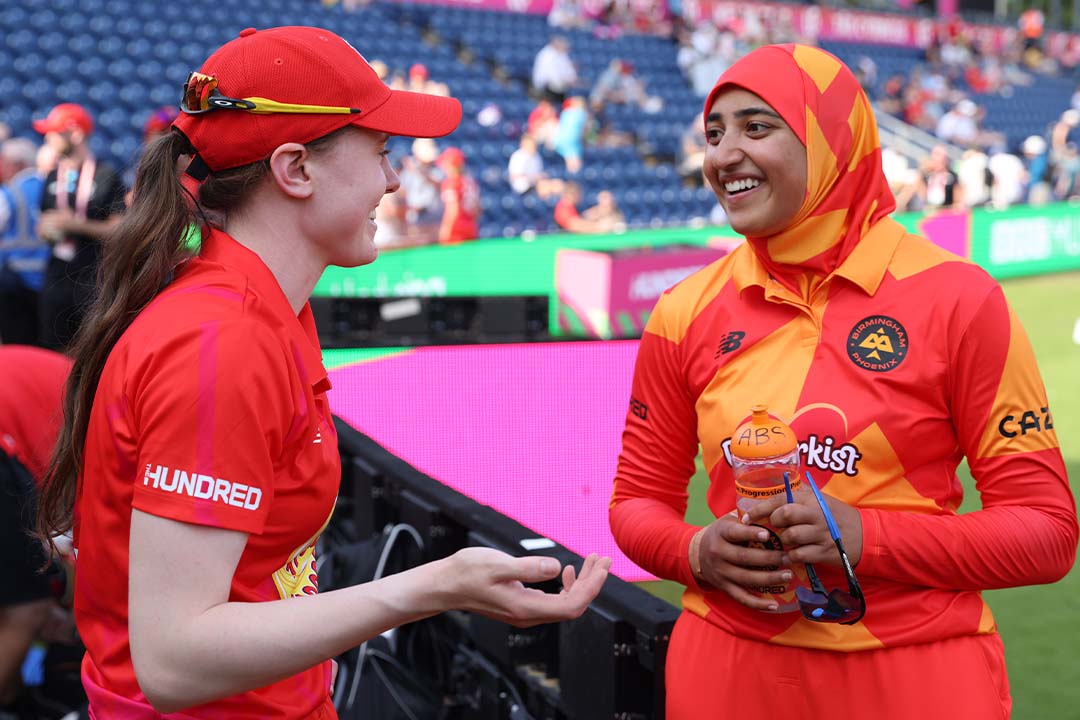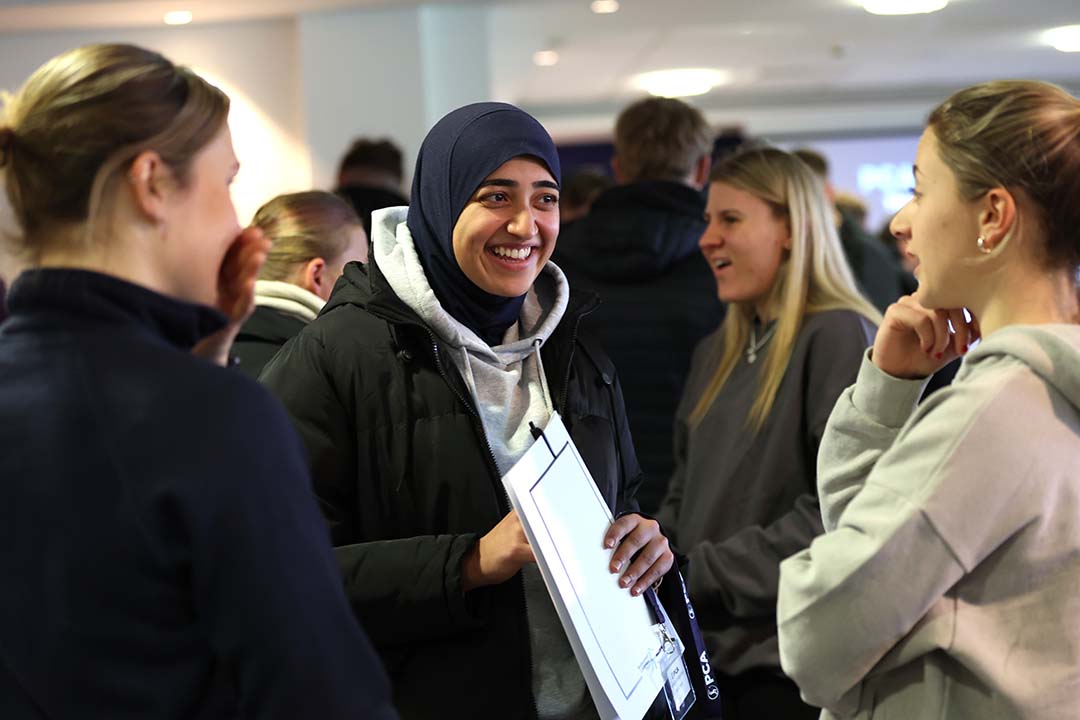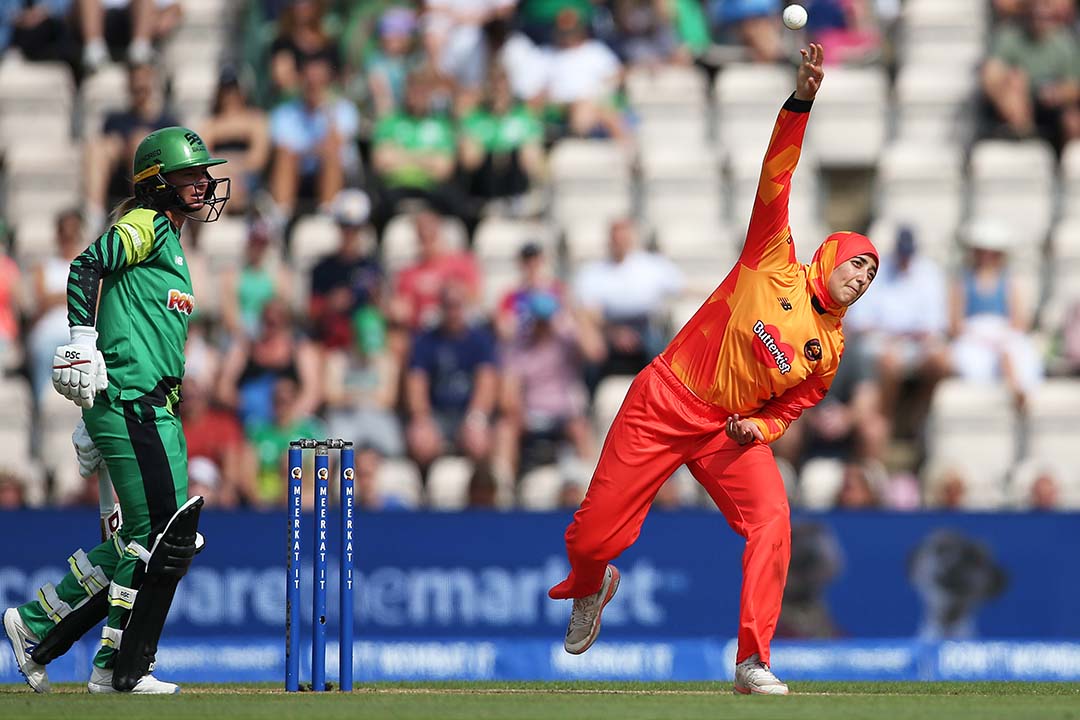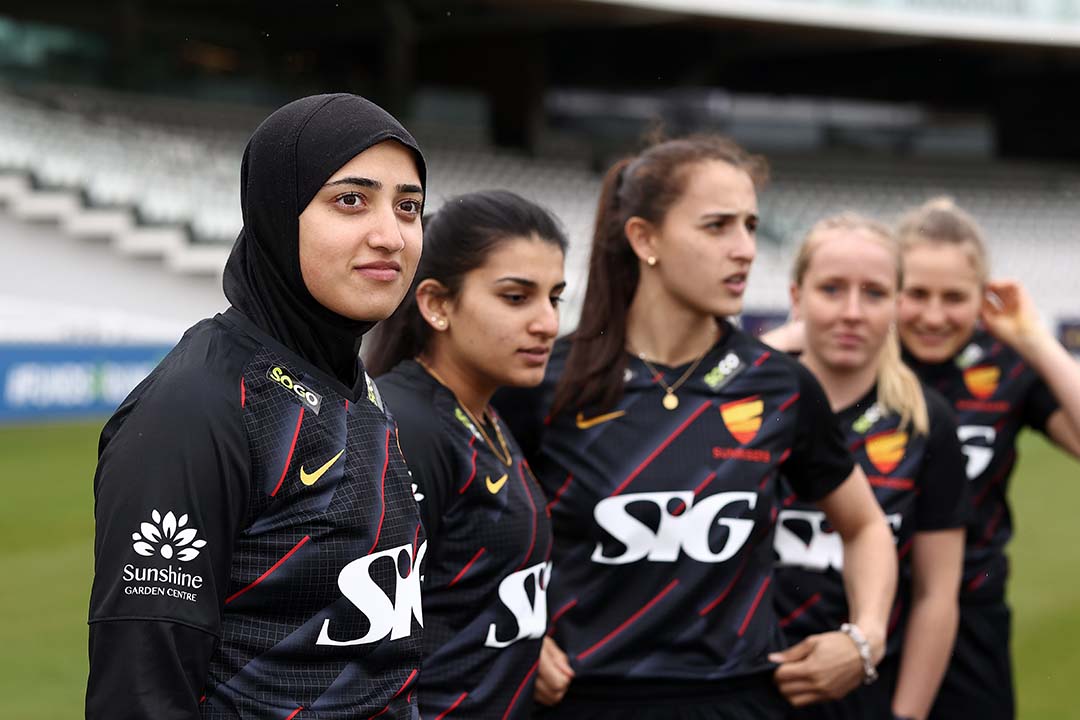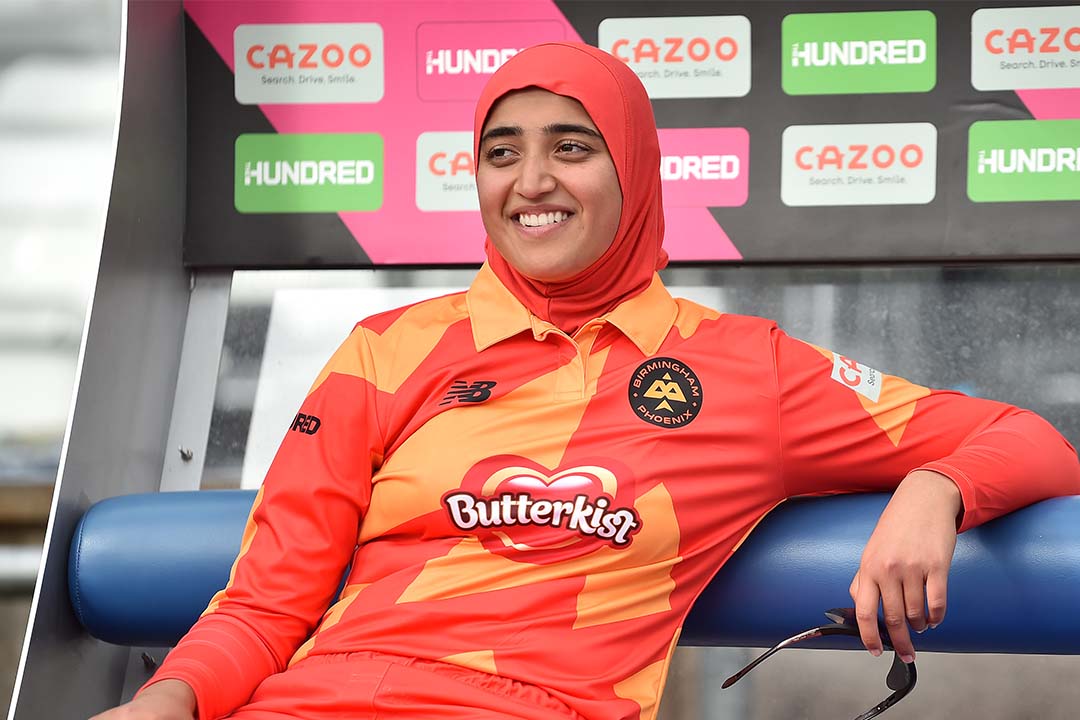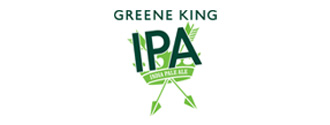Abtaha Maqsood is delighted to be celebrating something that is ‘a huge part of her life’.
The Sunrisers and Birmingham Phoenix leg-spinner is instantly recognisable in the cricketing world for wearing her hijab whilst playing and wants others to understand the importance behind it.
World Hijab Day was first set up in 2013 in recognition of millions of Muslim women who choose to wear the hijab and live a life of modesty.
The idea is to invite women from all walks of life to experience wearing the hijab for one day as a means of fostering personal freedom of religious expression and cultural understanding.
Around 150 countries around the world celebrate World Hijab Day with the aim of dismantling bigotry, discrimination and prejudice against Muslim women.
The Scotland international has become a role model for young girls coming into the game and last summer the 24-year-old took her maiden five wicket-haul with figures of 5-30 against Southern Vipers as Sunrisers picked up their first win in the Rachael Heyhoe Flint Trophy.
As part of World Hijab Day, Maqsood sat down with the PCA…
- Why is it important to recognise World Hijab Day?
- Maqsood: It’s important to be able to celebrate something that has been such a huge part of my life for such a long time now. Sometimes there can be some negative connotations associated with women wearing the hijab but it’s important to break that stereotype and celebrate how empowering and freeing the hijab is for so many Muslim women.
- Did you have any sports role models who wore a hijab to look up to when growing up? If not, who were your role models and why?
- Maqsood: No, unfortunately I didn’t have many role models who wore the hijab and played sport at a high level. Most of my role models were from the men’s game with Shane Warne being my favourite bowler that I looked up to. This is why I think it’s so important to try and be that person for other young people nowadays and to inspire them and show them that you can be a successful sportsperson no matter who you are, what religion you follow or what you choose to wear.
- How does it feel knowing that Muslim girls will be looking up to you as a role model?
- Maqsood: It is a huge responsibility to have young Muslim girls look up to me but also a great honour to be able to have a positive impact on other people’s lives.
- Have you ever been on the receiving end of discrimination for wearing your hijab?
- Maqsood: Thankfully I have never received any negative comments on or off the field from my peers. However, unfortunately, I have received many ignorant comments online through social media regarding my choice to wear a hijab, the religion I follow and my Pakistani background. I am really grateful for a brilliant support network in my family and friends who have never let me feel down about these sorts of comments.
- What’s the best way to educate people about the Muslim faith?
- Maqsood: Continue learning about Islam and other religions in schools to increase tolerance for different beliefs and cultures at a young age. It is also encouraged to ask your Muslim friends any questions that you may have about the religion as they would be more than happy to answer your questions as much as they can.
- What advice would you give a young Muslim girl who wants to player cricket and may have concerns because she wears a hijab?
- Maqsood: I totally understand the concerns that they may have but luckily things are changing within the sport and it is becoming more and more inclusive. It’s important to understand that they are not alone as there are loads of organisations and individuals out there who are willing to help if needed. There will definitely be highs and lows but with the right support network they can get through any situation.
- How can cricket lead the way in encouraging Muslim girls and women who wear a hijab to get involved in the sport?
- Maqsood: Access communities where there is a large south Asian population and offer resources, facilities and coaches in these areas. This will allow us to tap into a larger talent pool. A lot of Muslim women feel that they don’t have anywhere to play cricket – they may feel judged, not included and undervalued at clubs – so in order to help these women we need to create open, welcoming and inclusive environments which encourages Muslim women to give cricket a shot.
For more information on World Hijab Day click here.
